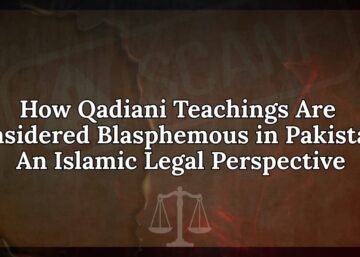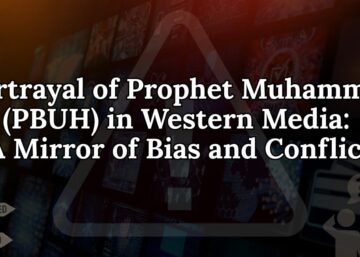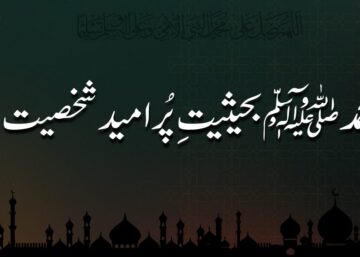The finality of prophethood, or Khatm-e-Nabuwwat, is a cornerstone of Islamic belief, unequivocally affirmed in the Qur’an and reinforced by the sayings (Ahadith) of Prophet Muhammad (PBUH). This article delves into the concept of the finality of prophethood and its significance, supported by authentic Hadith from the six highly regarded books of Hadith: Sahih Bukhari, Sahih Muslim, Sunan Abu Dawood, Sunan al-Tirmidhi, Sunan al-Nasa’i, and Sunan Ibn Majah.
- The Qur’anic Foundation for the Finality of Prophethood
Before exploring the Hadith, it is essential to understand the Qur’anic basis for this doctrine. Allah declares in Surah Al-Ahzab (33:40):
“Muhammad is not the father of any of your men, but he is the Messenger of Allah and the last of the prophets.”
This verse explicitly establishes that no prophet will come after Muhammad (PBUH), a declaration further elaborated in numerous authentic Hadith.
- Hadith Evidence from the Six Books
Sahih Bukhari
- The Prophet Muhammad (PBUH) said:
“The tribe of Israel was guided by prophets. When a prophet passed away, another prophet succeeded him. But no prophet will come after me; only caliphs will succeed me.”
(Sahih Bukhari, Book 60, Hadith 33)
This Hadith unequivocally states that the chain of prophethood ends with Muhammad (PBUH) and that leadership in the Muslim community after him will be through caliphs, not prophets.
- The Prophet likened his position in the line of prophethood to a brick completing a building:
“My example and the example of the prophets before me is like a man who built a house and perfected it except for one brick. People would go around it and wonder at its beauty but say, ‘If only this brick were put in its place!’ I am that brick, and I am the seal of the prophets.”
(Sahih Bukhari, Book 65, Hadith 3617)
This analogy highlights the finality of his mission, completing the edifice of divine guidance.
Sahih Muslim
- The Prophet Muhammad (PBUH) explicitly stated:
“There will be no prophet after me.”
(Sahih Muslim, Book 30, Hadith 5678)
This concise declaration leaves no room for ambiguity, affirming that Muhammad (PBUH) is the final prophet.
- Regarding the unique status of his prophethood, the Prophet said:
“I have been sent to all of mankind, and I am the seal of the prophets.”
(Sahih Muslim, Book 30, Hadith 5677)
This statement underscores both the universality and the finality of his mission.
Sunan Abu Dawood
- The Prophet Muhammad (PBUH) warned of imposters:
“There will arise thirty impostors in my Ummah, each of them claiming to be a prophet. But I am the last of the prophets, and there will be no prophet after me.”
(Sunan Abu Dawood, Book 37, Hadith 4336)
This Hadith serves as a caution against false prophets and emphasizes the closure of the prophetic office.
- The Prophet also said:
“If there were to be a prophet after me, it would have been Umar bin Khattab.”
(Sunan Abu Dawood, Book 40, Hadith 4653)
This statement further clarifies that even the most exemplary individuals in the Ummah, like Umar (RA), cannot hold the position of prophethood after Muhammad (PBUH).
Sunan al-Tirmidhi
- The Prophet (PBUH) reaffirmed the finality of prophethood:
“The chain of messengers and prophets has come to an end. There shall be no messenger nor prophet after me.”
(Sunan al-Tirmidhi, Book 49, Hadith 2219)
- The Prophet also emphasized his unique position:
“I am Muhammad, Ahmad, the Effacer (of sins), the Gatherer (of humanity), and the Seal (of the prophets).”
(Sunan al-Tirmidhi, Book 47, Hadith 3641)
These titles collectively highlight his final and comprehensive role as the last prophet.
Sunan al-Nasa’i
- The Prophet Muhammad (PBUH) described his mission as the completion of prophethood:
“I am the seal of the prophets; there is no prophet after me.”
(Sunan al-Nasa’i, Book 50, Hadith 8943)
This Hadith reaffirms the conclusion of divine prophethood with his mission.
- On the roles of saints and scholars:
“The scholars are the inheritors of the prophets. The prophets do not leave behind gold or silver, but they leave behind knowledge.”
(Sunan al-Nasa’i, Book 49, Hadith 8175)
This highlights the continuity of guidance through scholarship rather than prophethood.
Sunan Ibn Majah
- The Prophet Muhammad (PBUH) warned:
“In my Ummah, there will appear thirty liars, each claiming to be a prophet. But I am the seal of the prophets; there will be no prophet after me.”
(Sunan Ibn Majah, Book 36, Hadith 4091)
- The universality of his mission:
“I have been sent as a mercy to the worlds and as the last of all prophets.”
(Sunan Ibn Majah, Book 1, Hadith 229)
These Hadith emphasize both the comprehensive nature of his prophethood and its finality.
- The Significance of the Finality of Prophethood
- Preservation of Unity
The doctrine of finality prevents the emergence of new religious movements that could fragment the Muslim Ummah. Historically, false claims to prophethood have led to division and conflict, as seen during the Ridda Wars following the Prophet’s demise.
- Completeness of Islam
The finality of prophethood signifies that Islam is a complete and perfect way of life. The Qur’an and Sunnah provide comprehensive guidance for all aspects of life, rendering new prophets unnecessary.
- Role of Scholars
With the closure of prophethood, the responsibility of preserving and interpreting Islamic teachings falls upon the scholars (Ulama). They act as inheritors of the prophetic legacy, guiding the community through knowledge and understanding.
- Protection from Deviation
Belief in the finality of prophethood safeguards the Ummah from falling prey to false prophets and their misleading claims. The Qur’an and Hadith serve as benchmarks to evaluate any such claims, ensuring the purity of Islamic teachings.
Conclusion
The doctrine of the finality of prophethood is a foundational belief in Islam, firmly rooted in the Qur’an and Hadith. The sayings of Prophet Muhammad (PBUH) from the six major Hadith collections leave no room for ambiguity: he is the last prophet, and no one will succeed him in this role.
This belief is not merely a theological concept but a safeguard for the unity, integrity, and continuity of the Muslim Ummah. By understanding and upholding the doctrine of Khatm-e-Nabuwwat, Muslims ensure the preservation of Islam as the final and complete guidance for humanity.
References
- Sahih Bukhari
- Sahih Muslim
- Sunan Abu Dawood
- Sunan al-Tirmidhi
- Sunan al-Nasa’i
- Sunan Ibn Majah



